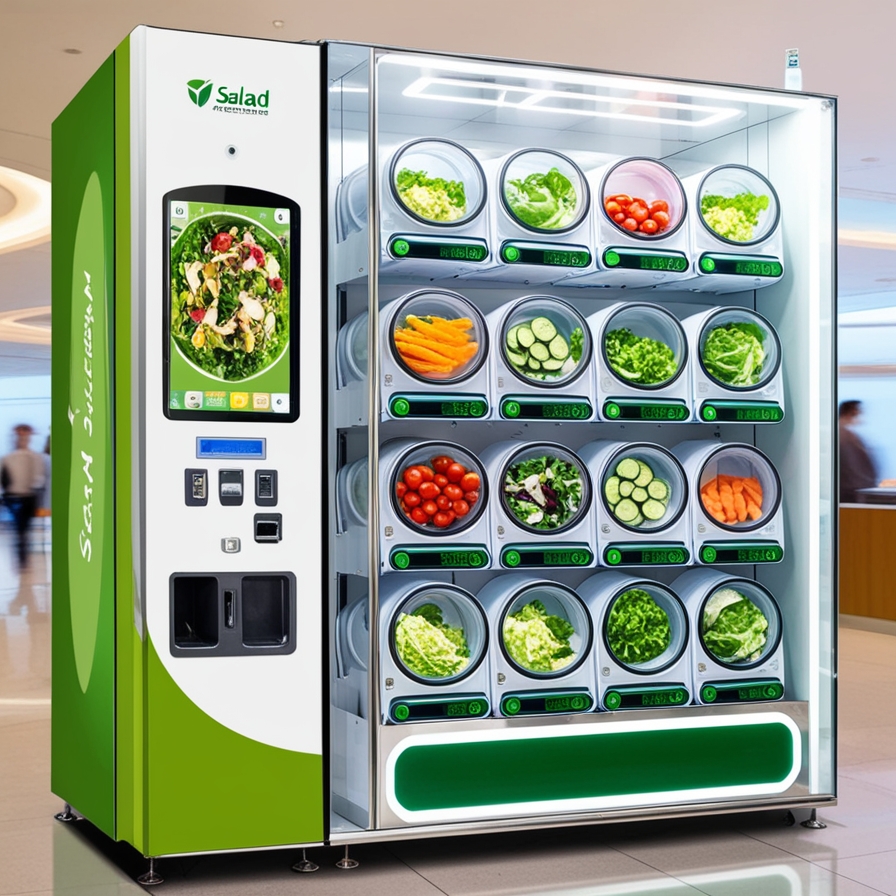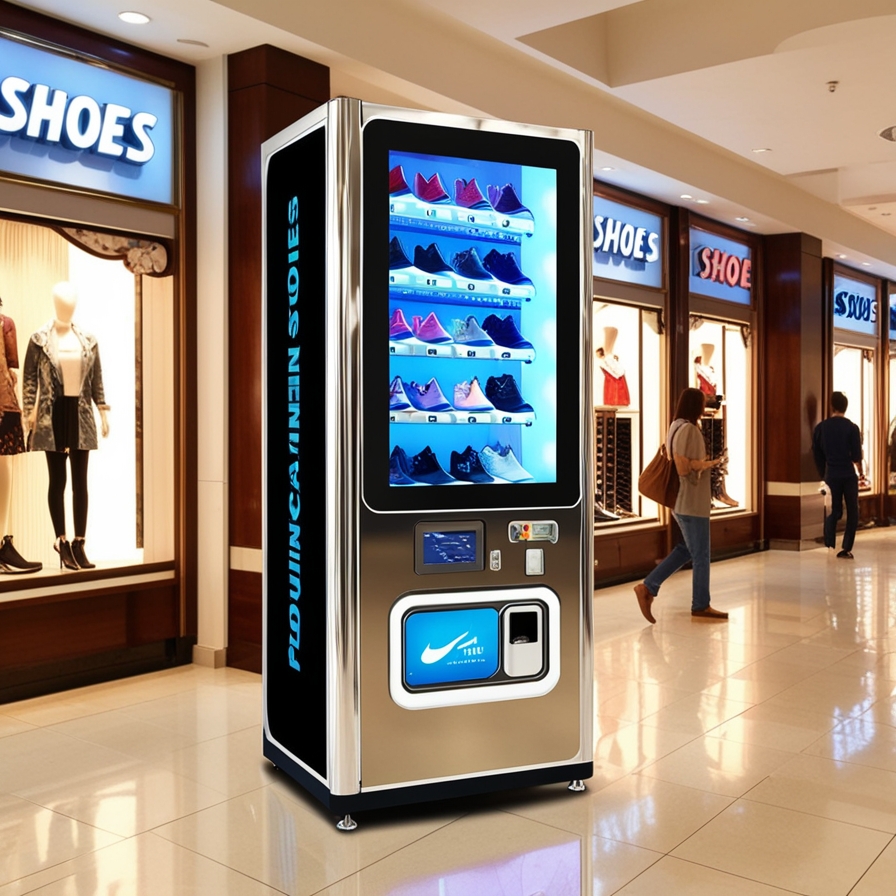Securing Your Investment
The Importance of Vending Machine Insurance
Vending machine businesses provide a valuable service, offering snacks and beverages on the go. However, like any business, they face risks—from vandalism and theft to mechanical failures and accidents.
This is where vending machine insurance becomes essential, protecting your investment and ensuring your business can recover from unexpected setbacks.
As technology evolves, so do vending operations, with cashless payment methods like Venmo increasingly integrated into these machines, highlighting the need for comprehensive insurance that keeps pace with technological advancements.
This integration not only simplifies transactions but also introduces new aspects of financial security that must be safeguarded.
What is Vending Machine Insurance?
Understanding Vending Machine Insurance Coverage
Vending machine insurance is a specialized form of business insurance tailored to meet the unique needs of vending machine operators.
This insurance typically covers damage or loss of the vending machines themselves due to causes like vandalism, theft, fire, and natural disasters.
It also often includes liability coverage, which protects the business owner in case someone is injured by a vending machine or if a product sold by the machine causes harm.
Unique Aspects of Vending Machine Business Insurance
Vending business insurance differs significantly from standard business policies due to the specific nature of vending operations.
Unlike traditional retail or office environments, vending machines are often placed in unsecured or less controlled areas, such as hallways, outdoor venues, or open public spaces, which exposes them to higher risks.
Additionally, the cash and cashless transactions that occur through these machines require additional protections against potential financial losses from fraud or technical issues with payment systems like Venmo.
This makes vending machine insurance uniquely comprehensive, as it is designed to address the diverse challenges faced by operators in this field.
Types of Insurance for Vending Machines
Essential Insurance Types for Vending Operators
Operating vending machines involves a range of risks that require specific types of insurance to manage effectively. The primary types relevant to vending machine businesses include:
- Property Insurance: This covers the vending machines themselves against damage from fire, theft, vandalism, and other forms of physical harm. Property insurance is crucial for operators because vending machines often house valuable products and cash, making them targets for theft and damage.
- Liability Insurance: Liability insurance is vital for protecting your business against claims if someone is injured by your vending machine or if a product dispensed causes harm. For instance, if a machine malfunctions and injures a customer, liability insurance can cover medical bills and legal fees.
When Each Insurance Type Proves Beneficial
Each type of insurance serves a critical role in different scenarios:
- Property Insurance: Benefits are seen particularly in situations where machines are placed in high-traffic or less secure areas where the risk of vandalism or theft is elevated. For example, a vending machine outside a busy metro station might suffer from accidental or intentional damage.
- Liability Insurance: This is especially beneficial in scenarios where there is a higher likelihood of interaction with a diverse clientele. A machine that dispenses hot beverages, for example, might malfunction and cause burns, a situation where liability coverage would be crucial to handle potential lawsuits or medical claims.
By understanding these types of insurance and their applications, vending machine business owners can better prepare for and mitigate the risks associated with their operations.
Costs of Vending Machine Insurance
Factors Influencing Insurance Costs
The cost of vending machine insurance can vary widely, influenced by several key factors:
- Location of Machines: Vending machines located in areas prone to vandalism, theft, or natural disasters may face higher premiums due to increased risk.
- Type and Value of Machines: High-tech or newer machines with advanced features like cashless payment options (e.g., Venmo) typically cost more to insure because they have higher replacement values and potential repair costs.
- Volume of Business: The number of machines you operate can also affect your insurance costs. More machines mean greater exposure to risk, which might increase premiums.
- Previous Claims History: Operators with a history of frequent insurance claims may face higher premiums as they are considered higher risk.
Average Cost Ranges and Influencing Factors
Insurance costs for vending machines can range significantly based on the aforementioned factors. On average, operators might expect to pay:
- Basic Coverage: For basic insurance coverage including liability and limited property damage, costs could start as low as $500 to $800 annually for a small operation.
- Comprehensive Coverage: For more comprehensive plans that include full replacement of machines and additional liability coverage, premiums might range from $1,000 to $2,500 annually, depending on the number of machines and their locations.
These costs are further influenced by the specific insurance provider and the level of deductible chosen. Operators can often reduce their premium costs by opting for a higher deductible, although this means paying more out of pocket in the event of a claim. It’s essential for vending machine business owners to carefully consider these factors and choose an insurance plan that balances cost with adequate coverage to protect their investments.
Importance of Vending Business Insurance
Why Insurance is Critical for Vending Machine Operators
Vending machine insurance is not just a regulatory requirement—it’s a fundamental aspect of protecting your business investment.
Vending machines, often located in accessible and unsupervised areas, are susceptible to a range of risks, including theft, vandalism, and mechanical failures.
Insurance safeguards against these potential financial losses by covering the cost of repairs, replacements, and even liability claims, ensuring that these incidents don’t lead to severe financial strain or the end of your business.
Moreover, vending machines that offer modern payment options, like Venmo, introduce risks associated with electronic transactions, including potential fraud or data breaches.
Comprehensive vending business insurance can cover losses related to these modern functionalities, ensuring that operators can embrace new technologies without undue risk.
Consequences of Inadequate Coverage: Real-Life Examples
Example 1: Theft and Vandalism In one notable case, a vending machine business owner in a large urban area suffered significant losses after several machines were vandalized and broken into.
The owner had opted for minimal property insurance coverage to save on costs, which unfortunately did not cover the full extent of the damage or the cash stolen.
The financial burden of replacing the machines and the lost inventory significantly impacted the business’s operations and profitability.
Example 2: Liability Claims Another example involves a vending machine dispensing hot drinks that malfunctioned, accidentally scalding a customer.
The operator had liability insurance, but the coverage limit was too low to cover all the medical costs and legal fees associated with the lawsuit that followed.
The insufficient coverage led to a considerable out-of-pocket expense for the business owner, highlighting the importance of adequate liability coverage.
These examples underscore the critical nature of securing sufficient insurance coverage. By ensuring comprehensive protection, vending machine operators can mitigate the risks associated with their businesses and focus on growth and profitability without the looming threat of potentially crippling financial disasters.
How to Choose the Right Insurance for Your Vending Machine Business
Selecting the Right Insurance Provider and Policy
Choosing the appropriate insurance provider and policy for your vending machine business is crucial for ensuring adequate protection and financial peace of mind. Here are some tips to guide you:
- Assess Your Specific Needs: Before searching for insurance, evaluate the specific risks associated with your vending machine locations, the types of products sold, and the technologies used (e.g., cashless payment systems).
- Compare Quotes: Obtain and compare quotes from several insurance providers to find the best coverage options at competitive prices. Look beyond the premiums to understand what is and isn’t covered.
- Check Provider Credentials: Research potential insurers to ensure they are reputable and have a good track record of handling claims promptly and fairly. Reviews from other vending business owners can be invaluable.
- Understand Policy Details: Carefully read the terms and conditions of each policy. Pay close attention to exclusions, limits, and deductibles to ensure there are no surprises when you need to make a claim.
- Seek Expert Advice: Consult with an insurance broker or agent who has experience in commercial business policies, particularly those involving vending operations. They can provide tailored advice and help you navigate the complexities of various policies.
Considerations for Businesses Using Modern Payment Systems
For vending machine businesses utilizing modern payment systems like Venmo, additional considerations come into play:
- Data Breach Coverage: Ensure that your policy includes coverage for electronic data breaches, which can protect you in case of financial losses due to fraud or theft of digital transaction data.
- Electronic Equipment Insurance: Since cashless systems rely on electronic hardware and software, look for policies that cover these components against malfunctions or damage.
- Increased Liability Coverage: With the integration of payment technologies, there’s a higher risk of disputes arising from transaction errors or unauthorized charges. Adequate liability coverage can protect your business from claims related to these issues.
By taking these factors into account, vending machine business owners can select an insurance policy that not only meets their current needs but also accommodates future growth and technological advancements, ensuring robust protection as the business evolves.
How Much is Vending Machine Insurance?
The cost of vending machine insurance varies based on several factors, including the number of machines, their locations, and the specific risks associated with the operation.
On average, insurance costs can range from $500 to $800 annually for basic coverage on a small number of machines.
For more comprehensive coverage, which includes liability and full damage protection, the cost can escalate to between $1,000 and $2,500 per year.
For example, a vending machine operator with 10 machines in a metropolitan area may pay around $1,200 annually for a policy that includes property damage, liability, and theft coverage.
Can I Insure Multiple Machines Under One Policy?
Yes, it is common for insurance providers to allow vending machine operators to insure multiple machines under a single policy. This approach not only simplifies the management of the insurance but often provides a cost-effective solution compared to insuring each machine individually.
When setting up your policy, ensure that the total value of all machines is adequately covered, and discuss with your provider how claims will be handled for multiple machines.
Are There Discounts for Bundling Different Types of Business Insurances?
Many insurance companies offer discounts to clients who bundle different types of business insurances, such as property, liability, and workers’ compensation.
Bundling policies can not only reduce your overall insurance costs but also streamline your administrative process since you’re dealing with fewer insurance contracts and points of contact.
When inquiring about vending machine insurance, ask providers about potential bundle discounts and how they might apply to your specific business needs, especially if you are considering additional coverage options for your operation.
Conclusion
Securing the right insurance for your vending machine business is not merely a regulatory necessity—it’s a critical step in safeguarding your investment against a variety of risks that can impact your operations and financial stability. From physical damage and theft to liability and technological risks associated with modern payment systems like Venmo, the right insurance policy offers peace of mind and ensures that your business can withstand unexpected setbacks.
As you consider your options, remember the importance of evaluating your specific needs, comparing offers from various providers, and understanding the details of each policy.
With the right approach, you can find an insurance package that not only fits your budget but also comprehensively covers the unique challenges of your vending business. Don’t underestimate the power of professional advice; consulting with an insurance expert can provide invaluable insights and help tailor a policy that perfectly aligns with your business objectives.
Ultimately, investing in robust vending machine insurance is investing in the longevity and success of your business. Take the time to choose wisely, ensuring that you’re fully protected as you grow and expand your vending operations.
Call to Action
Ready to secure the future of your vending machine business? Don’t wait for the unexpected to happen. Protect your investment today by reaching out to our team of insurance specialists who understand the unique challenges of the vending industry. We offer tailored insurance solutions that cover everything from property damage and liability to modern payment system risks like Venmo.



